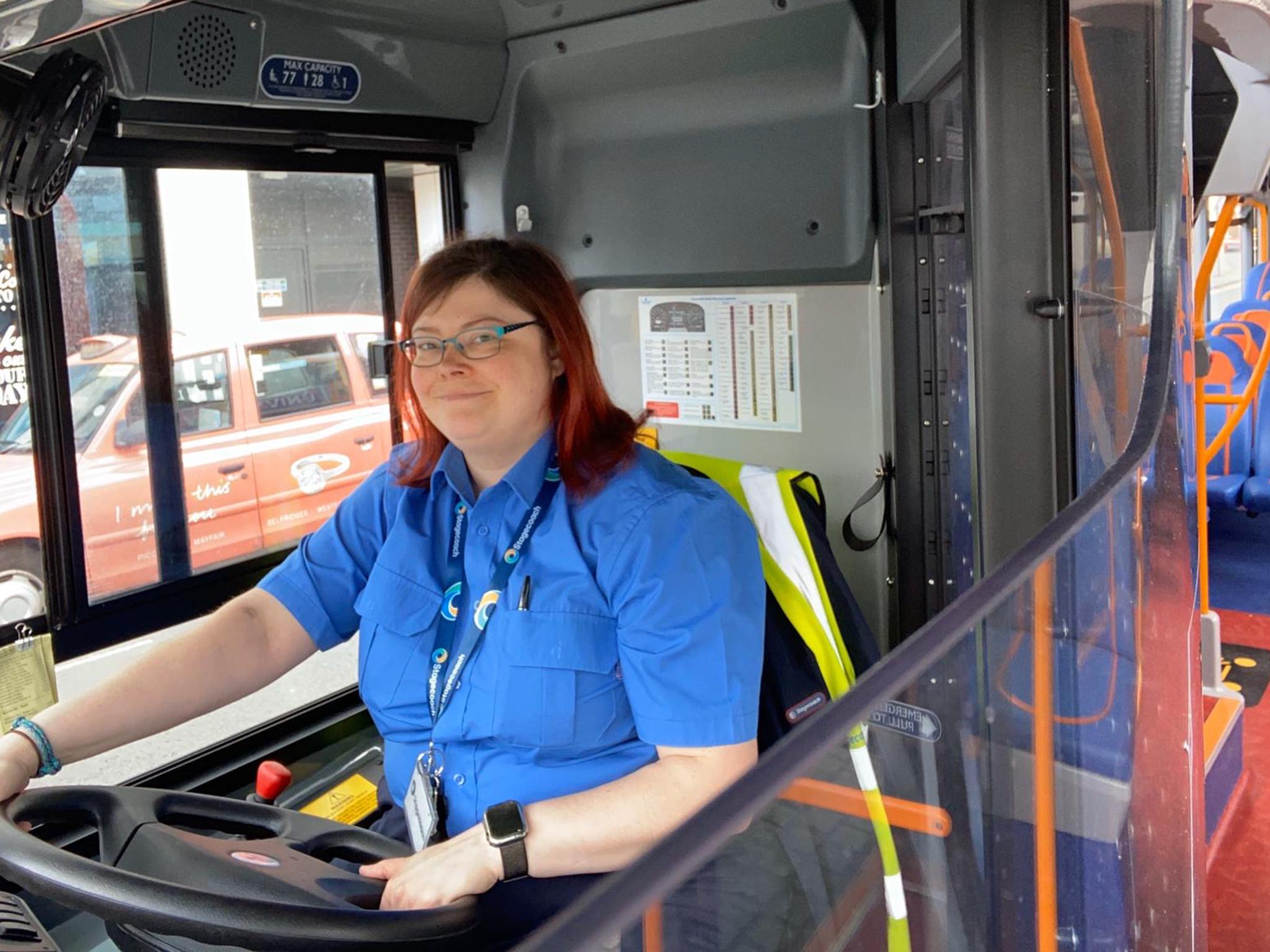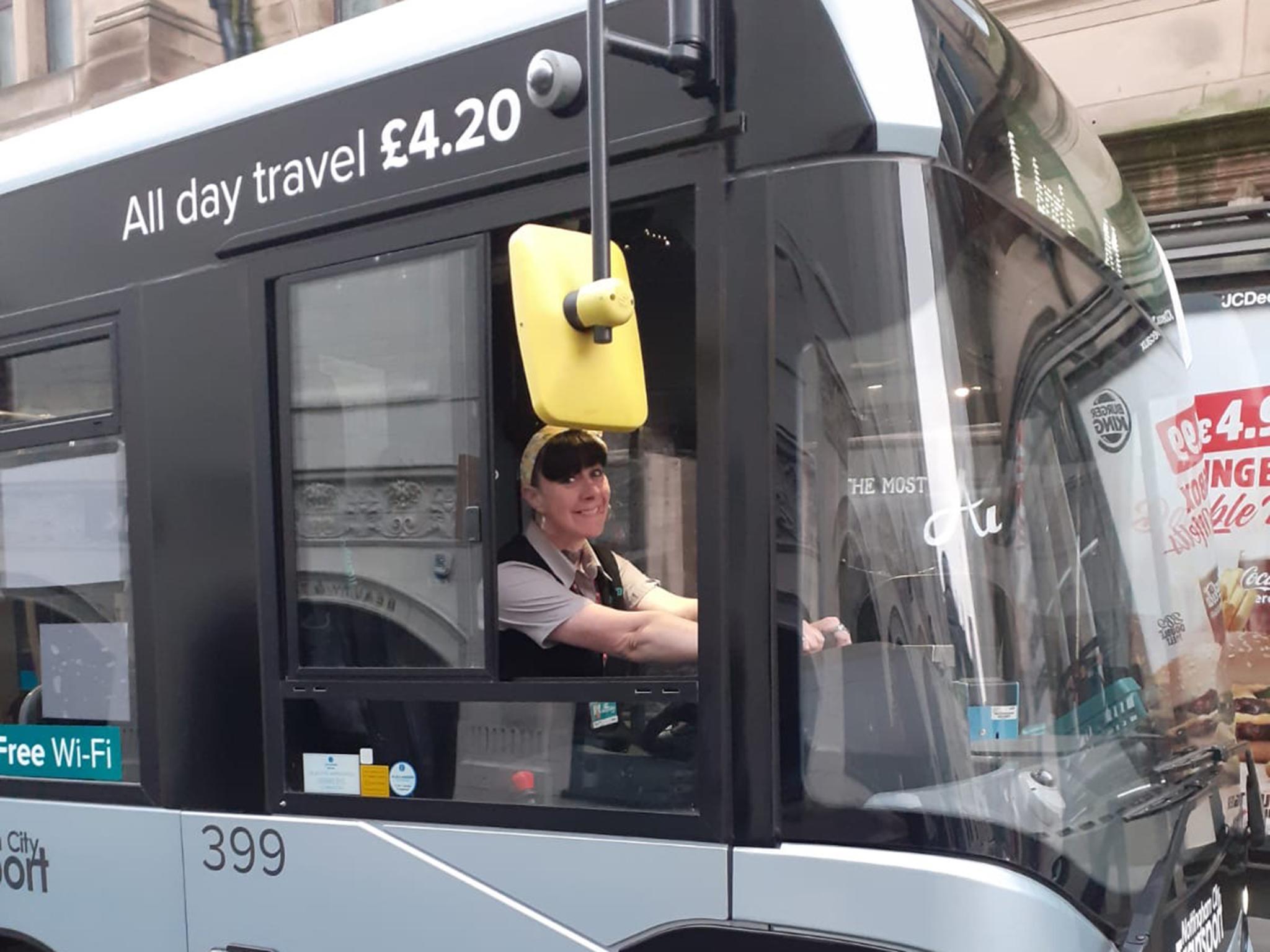Dozens dead but others drive on: How hero bus workers on coronavirus front line have kept country moving
If they didn’t go to work, neither would thousands of teachers, nurses and other key workers, writes Colin Drury


Your support helps us to tell the story
From reproductive rights to climate change to Big Tech, The Independent is on the ground when the story is developing. Whether it's investigating the financials of Elon Musk's pro-Trump PAC or producing our latest documentary, 'The A Word', which shines a light on the American women fighting for reproductive rights, we know how important it is to parse out the facts from the messaging.
At such a critical moment in US history, we need reporters on the ground. Your donation allows us to keep sending journalists to speak to both sides of the story.
The Independent is trusted by Americans across the entire political spectrum. And unlike many other quality news outlets, we choose not to lock Americans out of our reporting and analysis with paywalls. We believe quality journalism should be available to everyone, paid for by those who can afford it.
Your support makes all the difference.During the first two weeks of the coronavirus lockdown, John Murphy says it felt like he was switching his phone on every morning only to find another bus driver had died.
“When you’re in this profession, you’re a family,” the Unite union regional officer says today. “When someone loses their life, it hurts. The government keeps saying this pandemic is a war – well, we were being killed.”
At least 28 drivers in the capital have died after being diagnosed with Covid-19. Figures for the rest of the country are difficult to confirm but it seems likely at least another dozen have similarly succumbed.
Together, they were young and old, veterans and relative newcomers, and from a range of backgrounds. Some had underlying health conditions. One, Martin Egan, a driver in Bristol, had not taken a day off sick in more than six years.
But what they all had in common was that, as Covid-19 swept the country in late February and early March – as it became clear the simple act of sharing an enclosed space with others was a health hazard – they kept driving. They kept turning up to do their job – because if they did not, says Murphy, “no one else would get to work either”.
Teachers, he points out, “would not get to schools; nurses wouldn’t get to hospitals”.
As the country continues to wrestle with the coronavirus crisis, certain professions have stepped up to be counted in a way that has been a privilege to witness. NHS staff, delivery drivers and supermarket assistants have all shown themselves to be among a new backbone of Britain.
And key among these key workers have been bus drivers and transport workers.
In many ways, they have found themselves on something approximate to a front line. “But you carry on because, what’s drummed into you, is that it’s you who keeps the country moving,” says Murphy, a driver in London of 25 years before he took up his current post with Unite. “Whatever happens – terror attack, disaster, pandemic – it’s your duty to carry on.”
Graham Vidler, chief executive of the Confederation of Passenger Transport, puts it another way: “Without all those working in the bus industry, the emergency network for key workers would grind to a halt.”
Such workers have done all this, it’s worth adding, despite measures to protect their safety often being slow and limited. More of which shortly.
For now, none of this has gone unnoticed by many of us.
Through the trees, this writer can see the top deck of the number 51 from his study window in Sheffield. It runs less now than it did six weeks ago. But, amid the collapsing economies and rising death figures on TV and the empty streets outside, its presence once every hour or so is a reassuring reminder that some normality still exists.
The world is in crisis, perhaps, but you can still catch a First South Yorkshire from Lodge Moor up to Charnock.

“It’s lovely to know you can have that effect on people just by driving your bus,” says Rebecca Holt, a staffer with Nottingham City Transport which runs 50 services a day in the East Midlands city. “People have told me what we’re doing is inspiring but it’s just my job. It’s actually quite nice having quiet roads for once.”
All the same, she realised just how much she was impressing others when a van driver flashed her through a junction last week.
“There were two of them in the cab,” she says. “And, as I passed through, they started clapping me. I was just like, ‘Oh wow’. I felt like royalty.”
The 45-year-old is one of 173 of NCT’s 850 drivers still currently on the roads.
Since the lockdown, passenger numbers have fallen across the country to around 15 per cent of pre-crisis levels. Services have been reduced accordingly with resources redirected to routes connecting high population areas to key infrastructure such as hospitals and major supermarkets.
As a result, an estimated 80 per cent of the country’s 95,000 drivers have been furloughed. Stagecoach, the country’s biggest provider, has placed 55 per cent of its drivers and engineers on the government scheme.
Yet the fact that many such workers were apparently willing to carry on – indeed, did carry on pre-lockdown even as infection rates soared amongst colleagues – is a sign, it might be suggested, of an unrecognised sort of heroism.
“I wouldn’t call myself that,” demurs Holt, a mother-of-one who has been in what she calls her “dream job” for four years.
Why did she volunteer to keep driving then, I wonder? She’s not entirely sure. Financially, she says, she would have been happy enough to take a temporary 20 per cent pay cut and have the time off.
But? “I wanted to do something. I’m not a nurse. I can’t help people if they’re sick. But what I can do is get the nurses to where they need to be.”
It was a similar motivation for Kate Russell in Leamington Spa.
The 36-year-old has been a driver in the town with Stagecoach for 15 years. Her husband Dave, a fellow staffer, went on furlough to look after their two sons but she continued in her cab.
“Perhaps I’m blase about the risks,” she says. “But this is my town and I wanted to carry on serving it.”
Was she not worried, given the disproportionate number of drivers losing their lives, for her own heath? “Every time you hear of another driver like that, it’s devastating,” she says. “You can’t help but think about if it could happen to you. But you do what you can to stay safe and hope you’ll be OK.”
She herself is happy with measures taken by companies to protect their drivers.
Most are, by all accounts, now being provided with hand sanitiser and antibacterial wipes, and vehicles are deep-cleaned once a day. In London, after a concerted campaign, only the middle doors are being opened to the public. Elsewhere, holes in the plastic cab screens – which allowed drivers to better hear customers – have been filed in.
“We used to call them bandit screens,” says Russell. “Now, they’re known as virus screens.”
Yet, equally, there have been questions raised over whether companies – and the government – acted quickly enough.
Many safety measures were not introduced until post-lockdown – when many drivers had already fallen ill with Covid-19 – while there is still no PPE provided as standard. Calls to require customers to wear face masks have gone unheeded. When some drivers blocked off the first two rows of seats on their vehicles – essentially to ensure passengers were keeping their distance – a manager at Arriva threatened disciplinary action. The company later apologised.
“Safety measures are starting to appear now,” says Murphy, of Unite, again. “But if you go back to the war analogy, the enemy would have been at Hadrian’s Wall while we were still discussing defences. It was too slow, and it still doesn’t go far enough.”
The union is now calling for the £60,000 life assurance payment promised to families of NHS workers who die with coronavirus to be applied to bus drivers too.
“We accept that NHS staff and social care staff are in the highest category of risk,” says Bobby Morton, national officer for passenger transport. “But other key workers should be not be forgotten if the worst unfortunately happens.
“What we have discovered about coronavirus is that it is an indiscriminate killer that has been responsible for the deaths of far too many bus workers who are classed as key workers, keeping the country running during this national emergency.”
Back in Nottingham, it is something that Holt believes is a reasonable request – but she also has another somewhat simpler hope.
“I’ve been getting more people say thank you when they get off than I’ve ever known before,” she says. “It’s lovely to hear that, it makes you feel appreciated. When all this is over, I hope that carries on.”
Join our commenting forum
Join thought-provoking conversations, follow other Independent readers and see their replies
Comments